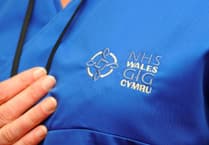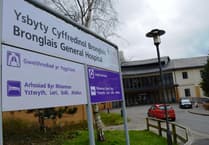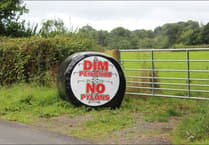You’ve probably heard the story. A tourist couple are hopelessly lost in deepest rural Ireland. Dusk is setting in when they come to a small crossroads with no signs. But to their relief, an old man is standing on the side of the road, and they ask him for directions. He thinks for a few moments and then speaks: “To be perfectly honest, if you want to go there, I wouldn’t start from here”!
His answer was funny and infuriating in equal measure, but if we stop and think it is easy to see that it contains an important kernel of truth. Life is like a journey. It is easy to know where we want to get to. There is probably more than one route. But to choose a good one, critically, we have to know where we are starting from. And in turn, that may require us to know where we have come from.
Take healthcare as an example. My bet is that 99 per cent of us all want the same thing. Great healthcare, available when we need it with no one having to worry about whether they can afford it. Are we at that place now? Self-evidently, no we aren’t. So if we want to delude ourselves that the NHS is the “envy of the world”, then we don’t actually know where we are starting from, which means we can’t plan the journey.
If we are brave enough to ask how we got here, it’s not difficult to acknowledge that a model which seemed like a good idea in 1948 is hopelessly outdated in 2023. That’s no one’s fault; healthcare has changed beyond peoples’ (in 1948) wildest dreams. We inhabit a different galaxy.
If we are honest about what has been good and bad in our current system (plenty has been very good by the way), then we can start to plan a journey to a better place. But we have to understand where we are starting from, and how we got here.
That’s true of so many other areas of our lives or maybe all of them. It’s why I despair of the so called “cancel culture”. We can’t undo the past, even if we find aspects of it deeply unpalatable. The Roman Empire is seen by many as a civilising institution way ahead of its time, with language, administration and engineering that still influence us 2,000 years later. But the Romans used massacres as an administrative instrument to impose what they saw as the greater good. It isn’t comfortable reading, but it happened none the less.
Forty-five years ago, when I was heading off to university, many of us (me included) were guilty of casual racism, homophobia and even misogyny. Arguably it was institutionalised. BBC One showed The Black and White Minstrel Show on primetime Saturday evening television. If it was aired now, someone would go to prison!
As a society we have made great strides down the road of tolerance and inclusivity. We can and should be proud of that. Noting the diversity within the last few UK Government cabinets, what brings me quiet satisfaction is that we don’t really think about it; we are becoming “colour blind”, and that’s a very good thing. But the journey isn’t over, and if we forget where we came from, there is a real danger of heading off in the wrong direction, or even going backwards.
Tolerance is a two-way process. Ignoring the rights of some to promote the rights of others is plainly wrong. Arrogantly dismissing peoples’ legitimate anxieties as some form of “ism” or phobia, is (ironically) deeply intolerant. Institutionalising difference (promoting multiculturalism) won’t result in integration. We must all be subject to the same law, expect the same rights and fulfil the same obligations.
Sometimes we beat ourselves up about how bad we are in this country. But recent events in Holland and Ireland suggest that we are not alone. In fact, our journey has by and large been a good one, but it isn’t over and in truth in never will be.
It all comes down to education
Good education is critical for every aspect of our lives and society. It can come in many forms; practical, vocational or academic. It’s all about giving our young people the chance to fulfil their potential, to lead productive and independent lives and play a role in society.
There is no doubt that the plans to amalgamate Ceredigion sixth forms into one site, will deny some of our youngsters a post 16 academic education. That is a terrible mistake.
If you care about our future, please consider signing this petition.




